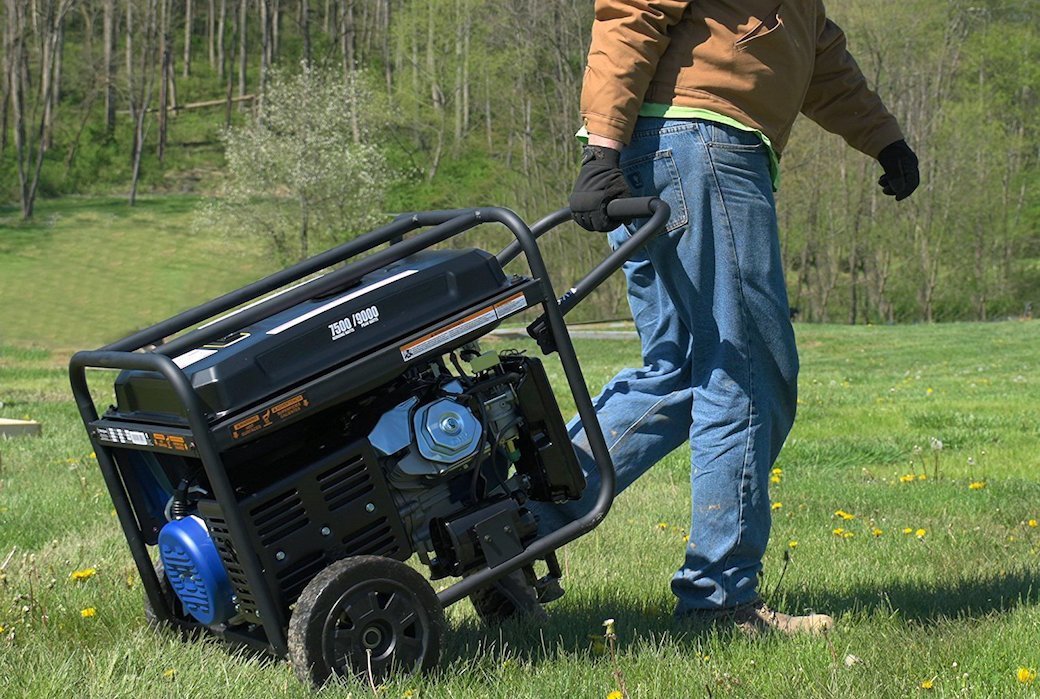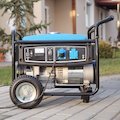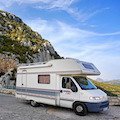- Home
- Blog
- Reviews
- All Categories
- Hot
- Appliances
- Automotive
- Books
- Baby & Kids
- Bed & Bath
- Beauty & Personal Care
- Cameras
- Computer
- Education
- Electronics
- Events
- Food & Drink
- Fashion Accessories
- Gaming
- Health & Wellness
- Home & Kitchen
- Holiday
- Lawn & Garden
- Music
- Office
- Outdoors
- Patio
- Pets
- Phones
- Services
- Shoes
- Shopping
- Sports & Fitness
- Tools
- Toys & Games
- Travel
- TVs
- Contact
- sabea
GENERATORS
Wherever we travel, we expect to bring our home comforts and our electronic gadgets, so a good RV generator is indispensable. While some modern motor homes come equipped with a built-in system, many do not. You’re unlikely to find one in a “pre-enjoyed” model either.
Whether you’re taking to the road for the first time or replacing an electrical generator that’s past its prime, the choice is enormous. You have different fuel options, different power outputs, conventional or inverter, and that’s just for starters.
Bringing a bit of clarity to your shopping experience is what BestReviews does. We can help you pick the best RV generator for your particular needs. We talk to industry experts, gather feedback from RVers just like you, and conduct tests in our own workshops. You can trust our findings because we don’t accept free samples from manufacturers.
Our final recommendations are the five products featured above. Each has something to offer in terms of performance and value that makes it stand out from the competition. The following shopping guide provides general information about choosing an RV generator.


It’s tempting to go big, but do you really need it? A smaller generator costs less to buy and to run.
WHO NEEDS AN RV GENERATOR?
You need electricity in your recreational vehicle, for sure, but do you need a generator? That depends on the kind of traveling you do.
- If you always stop overnight at organized areas, the campground will have electrical services (often called “shore power”). It’s convenient and usually cost effective.
- If you only have modest electrical needs, a battery pack is an option. In the past, RVs relied on battery packs for go-anywhere electrical power. Modern “power stations” are much more efficient than the car-type batteries used earlier. It’s also possible to recharge them via solar power, if the weather’s good.
- If you like to explore and stop at out-of-the-way places, and you want to power lights, refrigerator, TV, or even air conditioning, an RV generator is the only sensible option.
“Almost all electrical motors “surge” when switched on – draw more power than when they’re running. Check the surge watts as well as standard running watts of your generator.”
STAFF
BestReviews
CHOOSING AN RV GENERATOR
Before you buy an RV generator, you’ll want to consider the electrical capacity, fuel type, and other features.
Electrical capacity
This is the most important aspect – and the one that has the biggest impact on cost. The more power you want, the more expensive the generator you need.
You can make your decision one of two ways.
- Modify your usage to the output and price of a particular RV generator. This depends largely on your budget. If you have a set amount to spend, you’ll be looking for the best value RV generator you can find for the money. This will probably be a conventional model because they’re cheaper than inverter generators with the same amount of power. You’ll also want to add up the power consumption of the devices and appliances you consider essential. There’s no point buying a generator that’s too small just because it’s cheap.
- Calculate your total electrical needs, and buy a generator with enough power to meet it. This method also requires you to assess your power consumption, only this time the total will have a lot to do with the generator you choose.
Size
The wattage of every electrical device is marked on it somewhere. Light bulbs, for example, run anywhere from 40 to 120 watts, while a small refrigerator might be 500 watts. The wattage will help you determine what you decide to put in your RV. Some coffee machines can be surprisingly demanding at more than 750 watts.
Look at the labels of all the devices and appliances you plan to run and add up the wattage. Allow for the fact that you’ll probably never run everything at once, but don’t underestimate by too much. You don’t want to be watching TV and lose power because someone turns on the bathroom light!
Economy
The bigger the generator, the more fuel it uses. Manufacturers usually tell you the generator’s run time, so if you know the size of the fuel tank, you can work out the cost to run it. Bear in mind that these figures are rarely for a generator running at 100% capacity. That’s perfectly reasonable because generators seldom run flat-out. You still need to check the numbers carefully to make an accurate estimate.
Fuel type
There are three types of fuel used in electrical generators.
- Gasoline is the most common fuel for both inverter generators and conventional models. It’s widely available.
- Diesel generators can be very powerful, but most are designed for commercial use. As a result, diesel RV generators are rare.
- Propane (also known as liquid propane gas or LPG) is the cleanest fuel from an environmental point of view, but it can be hard to find in some areas. Propane gas is not as condensed as diesel or gasoline, so you’ll need a larger tanks for an equivalent supply.
- Dual-fuel RV generators (gasoline and propane) are also available. It’s a convenient and flexible option, but know that when using propane, the power output will drop up to 15%.


Propane takes up a lot of space compared to diesel or gasoline – roughly twice the volume to run for the same length of time.
STAFF
BestReviews
RV GENERATOR FEATURES TO CONSIDER
- Outlets: Mostly, you’ll connect your generator to your RV’s electrical system, but you might want to run exterior lights or music. The number and type of outlets (120 volt, 12 volt DC, USB) can be a factor in the generator you select.
- Surge Protection: This helps prevent electrical overload that could damage your appliances or portable devices.
- Built-In GFCI: Ground fault circuit interrupters add an extra layer of safety, cutting power in a fraction of a second and guarding against electrocution.
- Onboard Battery: Some RV generators have an onboard battery for push-button electric starting.
- Portability: If portability is important – particularly if you want to use your generator someplace other than your RV – think about the generator’s size and weight. Some RV generators have wheels.
- CARB and EPA Compliance: These generators produce much less air pollution than non-compliant models.
- Fuel Gauge: A fuel gauge is useful, as is an oil-level warning light.
- Paralleling: If your needs are large or you think they might grow, look for a generator that can be run in parallel. It means you can run two generators, or more, linked together. Not all RV generators have this facility.
- Recharger: It’s possible to use an RV generator to recharge old-style battery banks, but it’s neither a very efficient nor cost-effective solution. It’s better to look at a generator as a way of supplying your electrical needs directly.


FOR YOUR SAFETY
Never top off the gas in your RV generator. Always leave room for the fuel to expand if it gets hot. And never fill a generator while it’s running!
STAFF
BestReviews
RV GENERATOR PRICES
Depending on your needs, you can expect to pay between $150 and $12,000 to power the devices on your RV.
Battery Packs: If you can manage with 100 watts – enough for a couple of low-power lamps and a laptop computer – a battery pack is a viable option. Good ones cost around $150, but that won’t include a solar panel to charge it. Anything more than that and it’s time for a generator.
Conventional RV Generators: These models are great all-rounders with robust, reliable, and proven technology. You’ll pay anywhere from $500 to $1,000, depending on wattage. At the upper end of the scale, you’ll get a big, powerful beast that will handle all your RV electrical needs, including air conditioning.
Inverter RV Generators: These generators are becoming increasingly popular because of their compact dimensions and low noise levels. Dual-fuel RV generators fall into this category. Know that you will pay a premium for the more advanced technology. Spend around $1,000 on a portable inverter and you’ll get somewhere between 2,000 and 3,500 watts – half of what you’d get with a conventional model.
Permanently Installed RV Generators: You can get 10,000 watts and up from permanently installed RV generators, but these are expensive. One 12,500 watt model we looked at costs almost $12,000, plus fitting.


Avoid overload by switching on devices one at a time, a few seconds apart.
STAFF
BestReviews
TIPS
- Consider purchasing a generator cord, too. Although RVs usually have specific outlets to plug your generator into, you might also consider a generator cord (gen cord), an extension cord specifically designed for generator use. At the output end, it can have three or four household-type 120v sockets. If you’re running lights or other electrical equipment outside, you only need to run one cable instead of several.
- Never run a generator in an enclosed space. RVs usually have specific platforms or spaces for generators. Gasoline, diesel, and propane all produce carbon monoxide, which can kill if not properly vented. When the generator is in use, the platform should always be extended or the doors open to provide ample ventilation.
- Check the loudness of the generator before buying. Some areas, particularly National Parks, have maximum decibel restrictions. Most modern RV electrical generators are relatively quiet, but you’ll want to make sure.


If you’re concerned about the environment, look for a solar-powered generator. You’ll get less wattage, but you’ll never need to use fuel, eliminating harmful emissions.
FAQ
Q. Does my RV generator need to be grounded?
A. When you plug a generator in at home, it’s grounded via your household system. If you plug your RV’s system into a campsite’s shore supply, it’s grounded by the campsite’s system.
If you’re running a standalone portable RV generator, things can get complicated. Generators are termed as either bonded (earthed to their frame/chassis), or non-bonded (floating neutral). If your RV doesn’t have an electrical management system (EMS), either type of RV generator should work fine. If a smart EMS is installed, it may not work with non-bonded generators. The usual solution is to buy a bonding plug to suit your generator. If you’re unsure, we recommend you get in touch with your RV’s manufacturer or seek the advice of a qualified professional.
Q. Should I choose a portable or permanently installed RV generator?
A. The answer to that depends on your circumstances, but there are a couple of general guidelines. Permanently installed RV generators often deliver considerably more power than portable models and are much more expensive as a result. There is also the cost of installation (often a professional job), and – on older RVs – the question of whether there is a suitable space for the generator.
There is a wide range of portable RV generators, so power is seldom an issue. You can run one from outside your RV if there isn’t a designated space for it. Portable generators can also be used away from your vehicle, such as in your backyard.
Q. Are inverter generators better than conventional models?
A. It depends on your definition of “better.” Conventional RV generators are often more powerful, as well as bigger and heavier. Also, these models run at a constant rate, regardless of the draw on them.
Inverter RV generators are more portable. While, dollar-for-dollar, these don’t match conventional models for power, inverter generators are more efficient, only working hard enough to supply the power demanded from them at any given time. Inverter generators are much more fuel efficient and much quieter. If you have relatively modest needs, an inverter generator is an excellent choice. If your RV is full of gadgets, you’re still going to want that big conventional model.